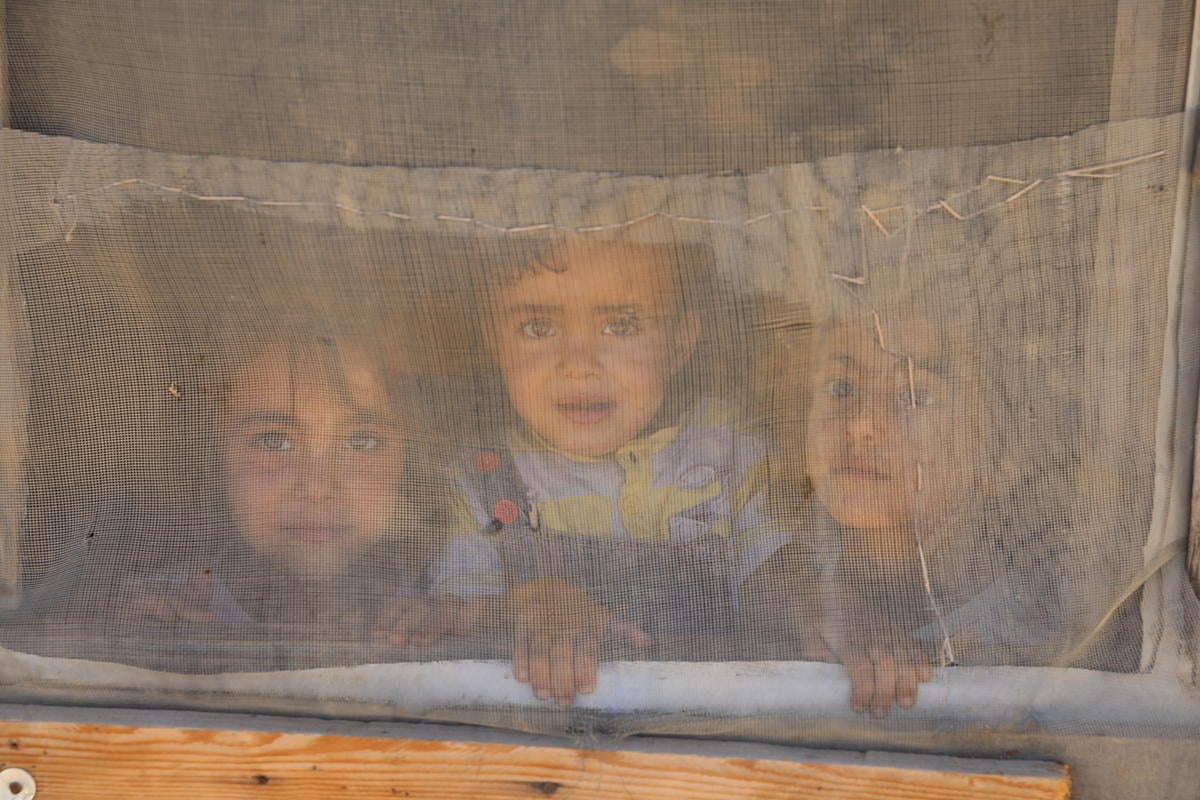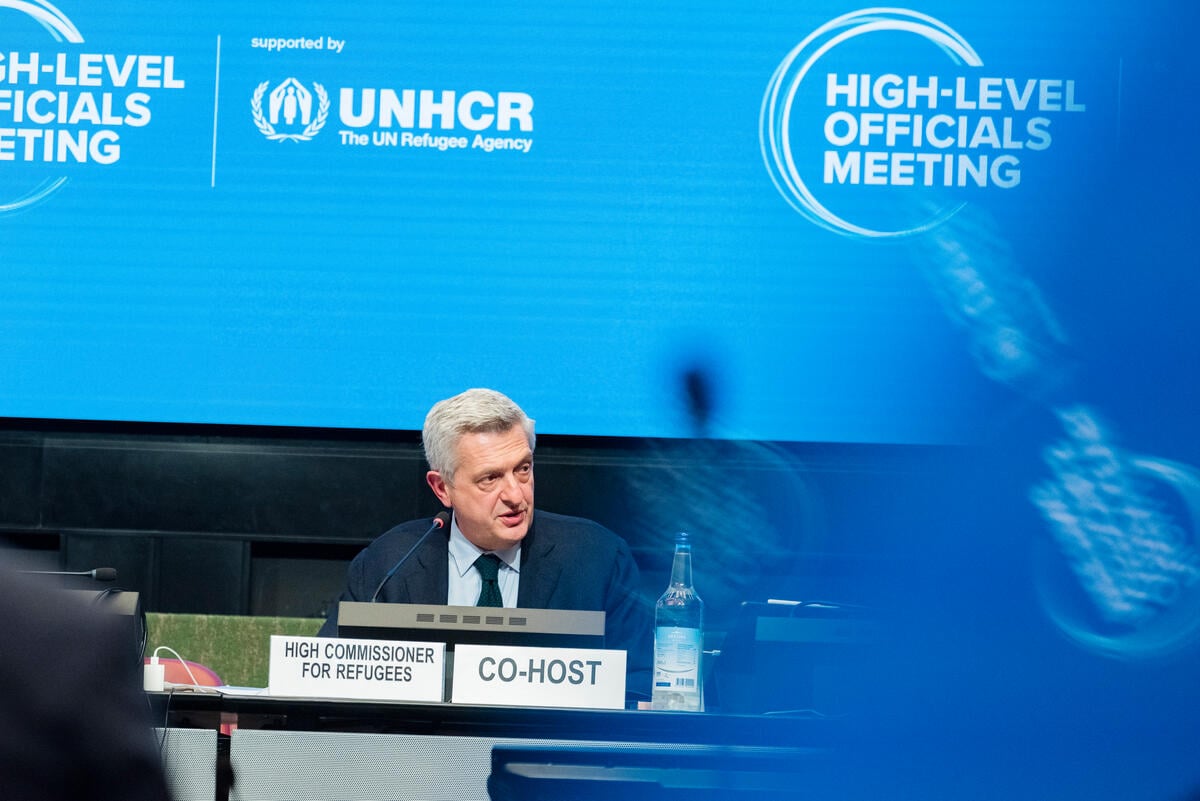Iraqi family board a flight to Australia and the end of their journey
Iraqi family board a flight to Australia and the end of their journey

JAKARTA, Indonesia, June 2 (UNHCR) - Tucked behind a mountain of luggage amid the bustle of Jakarta's Soekarno-Hatta International Airport, an Iraqi couple and their three daughters say their last farewells to friends. Having been stranded in Indonesia for almost seven years, they have finally been given the opportunity to begin a new life on the east coast of Australia.
"I couldn't make any plans for my future until now," said Hassan Sami Al-Badri, the family patriarch. "Now I'm going to Australia, I feel like I've been given a new life." Al-Badri left his homeland, Iraq, for Iran in 1972 - when he was two years old - due to the persecution faced by his parents under the Saddam Hussein regime. He has never known what it is like to have a permanent home.
He and his wife, also an Iraqi exile, were not allowed to work in Iran, while their young daughters were not able to attend school under government regulations. Because of the difficult conditions in Iran, the family flew to Malaysia in 2001 and then made their way by boat to Indonesia.
But they also faced hardship and uncertainty in Indonesia and, two years ago, Al-Badri told UNHCR staff of their desire to live in a place they could really call home. While the Indonesian government allows refugees to stay temporarily, they do not have legal status or work rights and so struggle to build any kind of normal existence.
"Indonesia has been very generous in allowing refugees to stay temporarily, while we look for a more durable solution," said Robert Ashe, UNHCR's regional representative in Jakarta. "That solution has now been offered by Australia, a strong supporter of UNHCR's work both in financial contributions and in terms of providing resettlement opportunities to refugees from many parts of the world."
While Al-Badri and his family will not miss the restrictions facing refugees in Indonesia, they will miss the close friends they have made after seven years of living in the local community. This means there is also some sadness in leaving.
"My heart was very sad and I cried saying goodbye to my neighbours and friends," Al-Badri admitted. His 10-year-old daughter, Esra, pulled a damp handkerchief out of her backpack and said: "It's wet from all my tears, when I was saying goodbye to my friends."
But she was still looking forward to a new life in Australia. "I want to go to school, and I want to become a doctor so I can help people when they get sick," she revealed.
Esra and her sisters had started attending school in Indonesia, but Al-Badri explained that the two elder girls had to stop going, because they had difficulties with the language. "I've been teaching them at home for the last couple of years. And they go to English and computer classes at the refugee centre," he said.
They are all determined to make the most of this opportunity and are confident that they can make a positive contribution in Australia. Al-Badri's wife, Hana, motioned towards her suitcase and explained: "It's full of beads. I'm going to make them into bags and bead jewellery in Australia, and hopefully I can sell them."
Al-Badri, meanwhile, was carrying the materials he uses to teach computer classes at the refugee centre, hopeful that he can get a job as a teacher in Australia. His daughters are eager to restart their education, and learn English.
"It has always been our hope that we could start a new life in Australia," Al-Badri said. "Finally our patience has been rewarded," his wife added.
By Jacqueline Parry and Anita Restu in Jakarta, Indonesia








